From Charleston to beautiful golf courses, South Carolina is filled with notable things that make it famous, and if you’re wondering, “what is South Carolina known for?” then you’ve come to the right place!
As an American who has traveled the USA all over, I can tell you that the answer to, “what is South Carolina famous for?” is – quite a lot!
You’ve got the history of places like Charleston with the winding cobblestone streets, as well as some major football fandom throughout the state and of course barbecue and other southern cuisine that don’t go unnoticed.
In this guide, we’ll uncover all the cool things South Carolina is known for, including foods South Carolina is famous for and people South Carolina is known for!
1. Historic Charleston
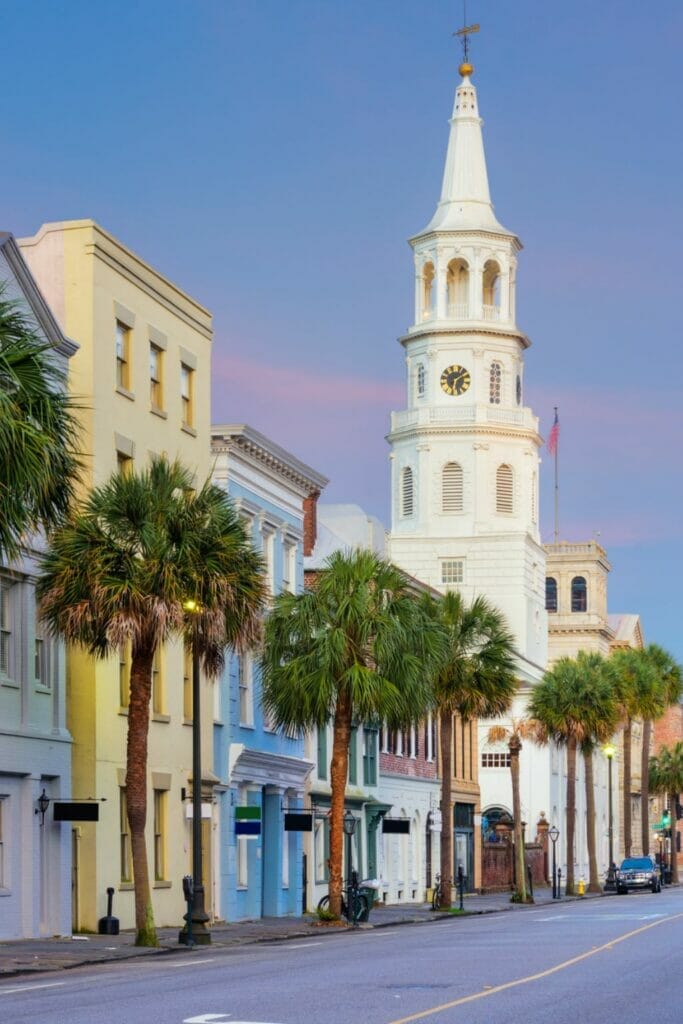
Charleston, often referred to as the “Holy City,” is a city steeped in history and renowned for its well-preserved architecture and charming cobblestone streets.
Its historic district boasts beautifully preserved antebellum homes, churches, and public buildings that offer a glimpse into the city’s colonial and Civil War-era past.
2. Myrtle Beach

Myrtle Beach is a vibrant coastal destination known for its expansive beaches, entertainment options, and family-friendly atmosphere.
The city offers a diverse range of attractions, from amusement parks and water parks to golf courses and shopping centers.
The Myrtle Beach Boardwalk is a hub of activity with its shops, restaurants, and oceanfront views.
3. Southern Cuisine

South Carolina’s cuisine is a cornerstone of its culture, known for its hearty and flavorful dishes.
Shrimp and grits, a beloved Southern classic, consists of creamy grits topped with plump shrimp in a savory sauce.
Hushpuppies, deep-fried cornmeal fritters, are a ubiquitous side dish often served with seafood.
Collard greens, slow-cooked with pork, provide a taste of traditional Southern soul food.
4. Palmetto Tree and Moon
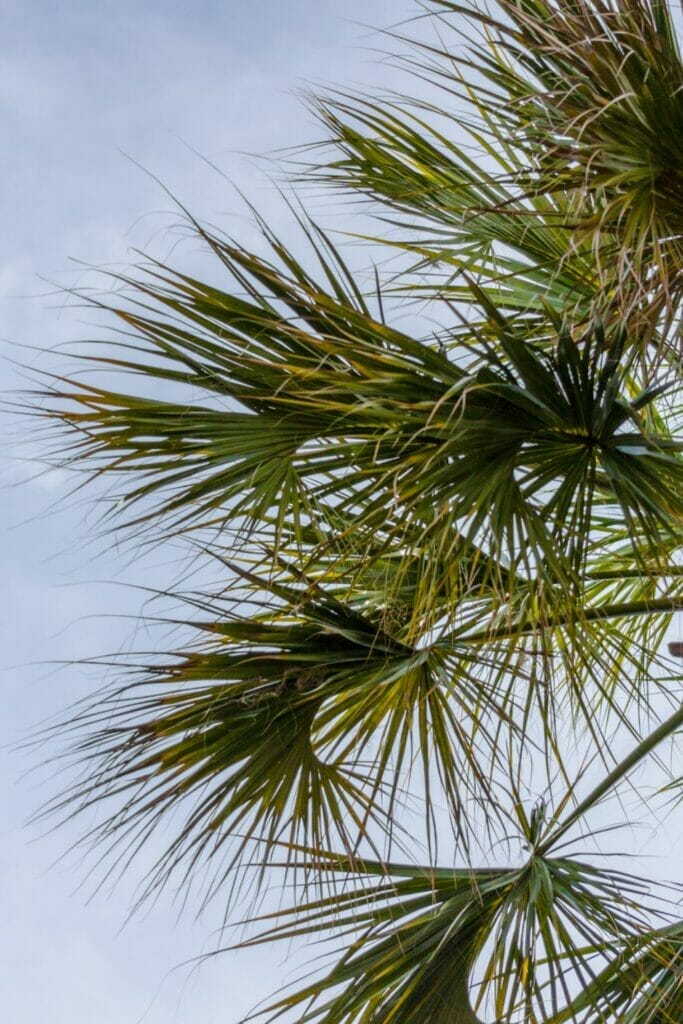
The iconic image of the palmetto tree and crescent moon on South Carolina’s state flag holds historical significance.
The palmetto tree represents the fortifications made of palmetto logs that played a crucial role in defending against British naval attacks during the Revolutionary War.
5. Civil War History
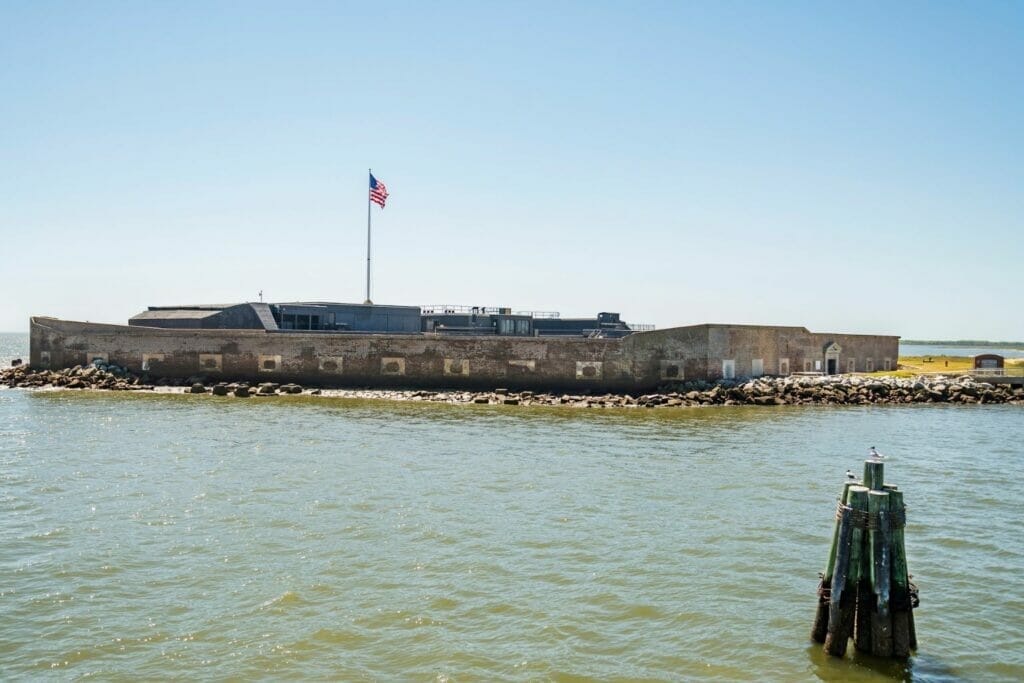
South Carolina was a focal point of the American Civil War, as the first shots of the conflict were fired at Fort Sumter in Charleston Harbor.
The state’s secession from the Union in 1860 marked a pivotal moment in the lead-up to the war.
The legacy of the Civil War is deeply ingrained in the state’s history, and visitors can explore battlefields, monuments, and museums that offer insights into this tumultuous period.
6. Plantations
South Carolina’s plantation history is a complex mix of agriculture, labor, and culture.
Many historic plantations, such as Magnolia Plantation and Middleton Place, provide a glimpse into the antebellum South.
These sites often offer guided tours of the grand homes, beautifully landscaped gardens, and informative exhibits about the lives of enslaved individuals who lived and worked on these plantations.
7. Golf Courses

The state boasts a remarkable selection of golf courses that attract players from around the world.
Myrtle Beach, in particular, is a golfing paradise with its abundance of courses set against stunning coastal backdrops.
The Heritage Golf Tournament, held annually at the Harbour Town Golf Links in Hilton Head, is a notable event on the PGA Tour.
8. Gullah Culture
The Gullah culture, rooted in the Lowcountry region, is a unique and vibrant African American heritage that emerged from the experiences of enslaved Africans and their descendants.
This rich cultural tradition encompasses language, art, music, cuisine, and spirituality.
9. Famous Barbecue
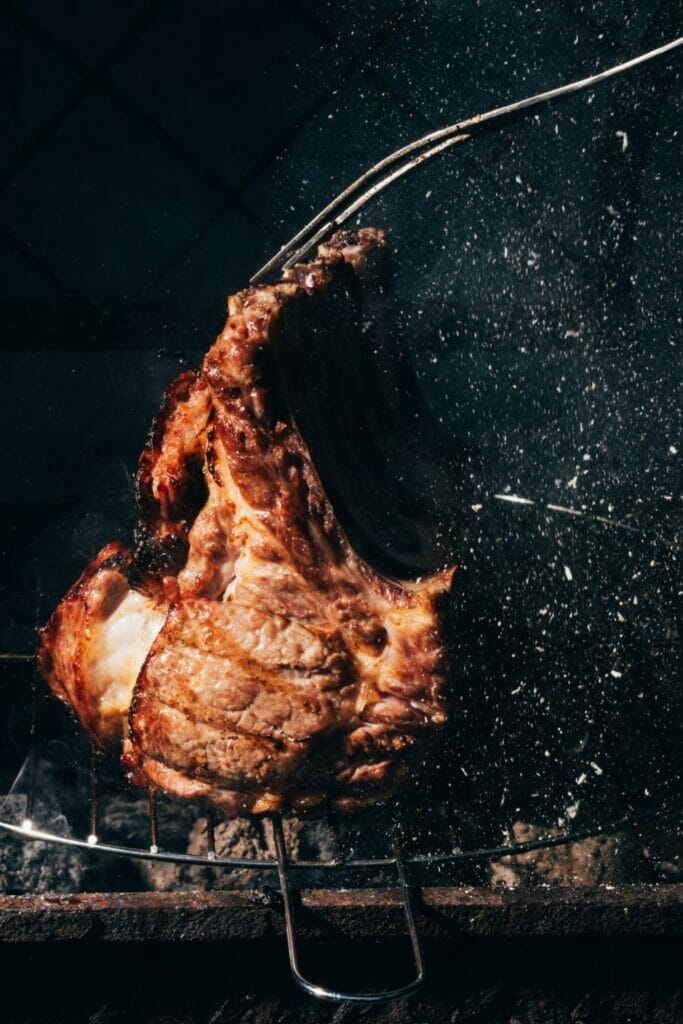
South Carolina’s barbecue tradition stands out with its distinctive mustard-based sauce.
This tangy and slightly sweet sauce is used to complement slow-cooked meats like pulled pork, ribs, and chicken.
The state’s barbecue culture is divided into different regional styles, with the mustard-based sauce most prominent in the central and coastal regions.
10. Hilton Head Island
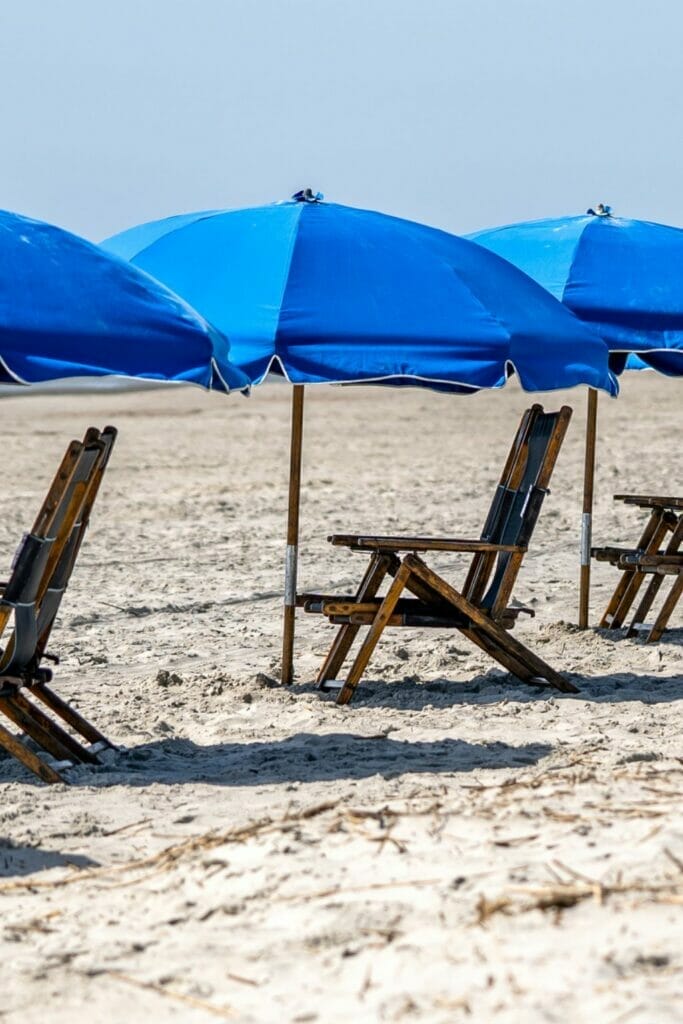
Hilton Head Island is renowned for its upscale resorts, pristine beaches, and world-class golf courses.
The island’s natural beauty is preserved through strict zoning regulations, resulting in a serene environment that emphasizes outdoor recreation.
Visitors can enjoy biking on scenic trails, exploring wildlife preserves, and indulging in water sports such as kayaking and paddleboarding.
11. Swamp Fox
Francis Marion, also known as the “Swamp Fox,” was a Revolutionary War hero who played a crucial role in guerilla warfare against British forces.
His strategic use of the South Carolina swamps and forests earned him the nickname, as he used hit-and-run tactics to harass and weaken the British troops.
12. Palmetto State
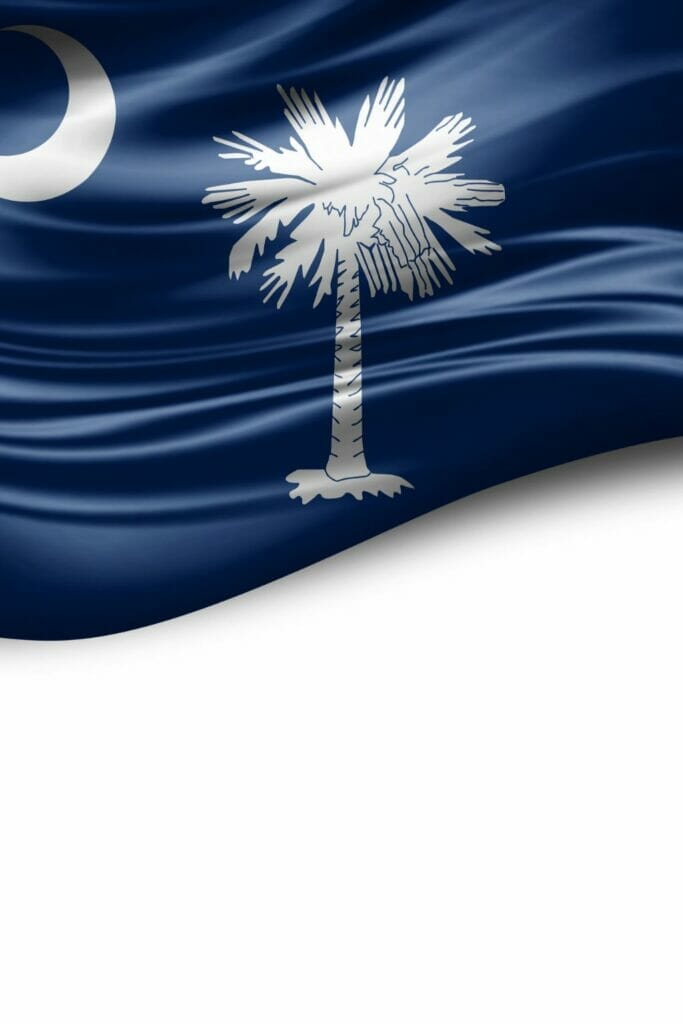
South Carolina is often referred to as the “Palmetto State,” a nickname derived from the palmetto tree that played a key role in the defense of Charleston during the Revolutionary War.
The soft, spongy nature of the palmetto logs helped absorb the impact of British cannonballs, allowing the fortifications to withstand the attack.
13. Fort Sumter
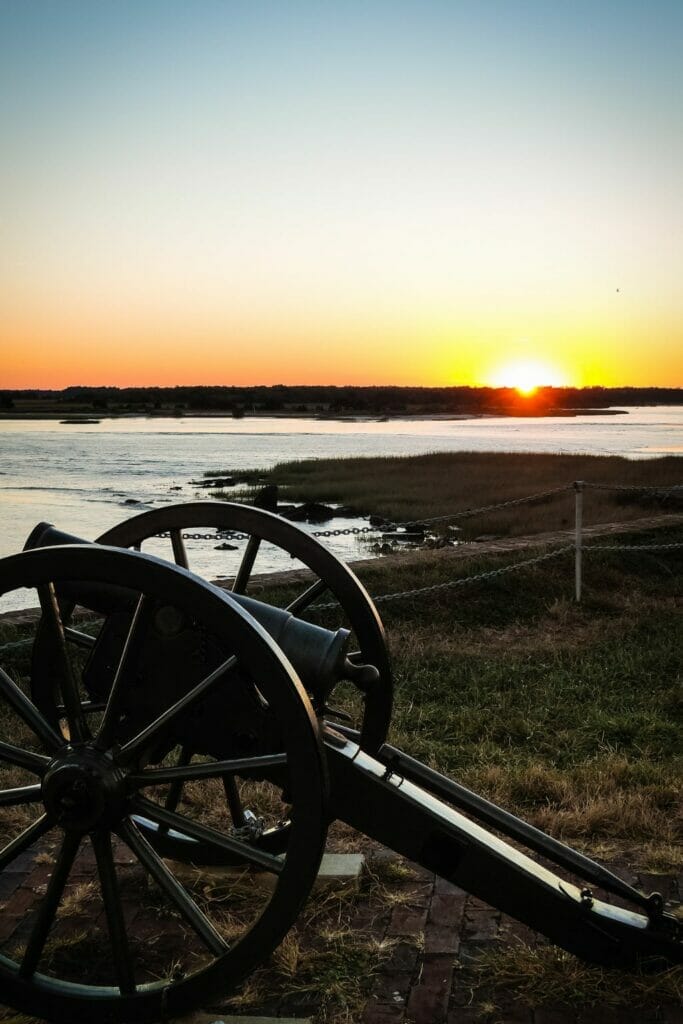
Fort Sumter holds significant historical importance as the site where the first shots of the American Civil War were fired on April 12, 1861.
The fort, located in Charleston Harbor, was under Union control at the time and was subjected to a Confederate bombardment.
The battle marked the beginning of a conflict that would shape the nation’s history.
14. South Carolina Aquarium
Situated in Charleston, the South Carolina Aquarium offers an engaging and educational experience focused on the state’s diverse aquatic ecosystems.
The aquarium showcases a variety of marine life, from native species found in the coastal habitats to exotic creatures from around the world.
15. Peaches
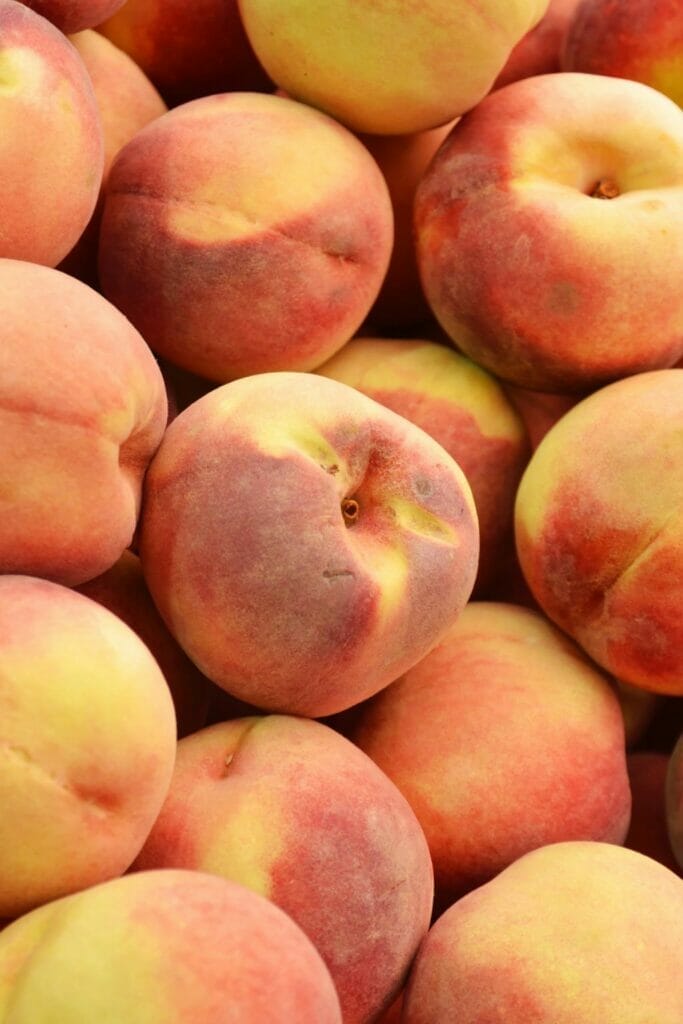
South Carolina is known for producing delicious and flavorful peaches.
The state’s climate and soil conditions create an ideal environment for growing these juicy fruits.
During peach season, which typically runs from May to August, visitors and locals can enjoy picking their own peaches at orchards and farms across the state.
16. Congaree National Park
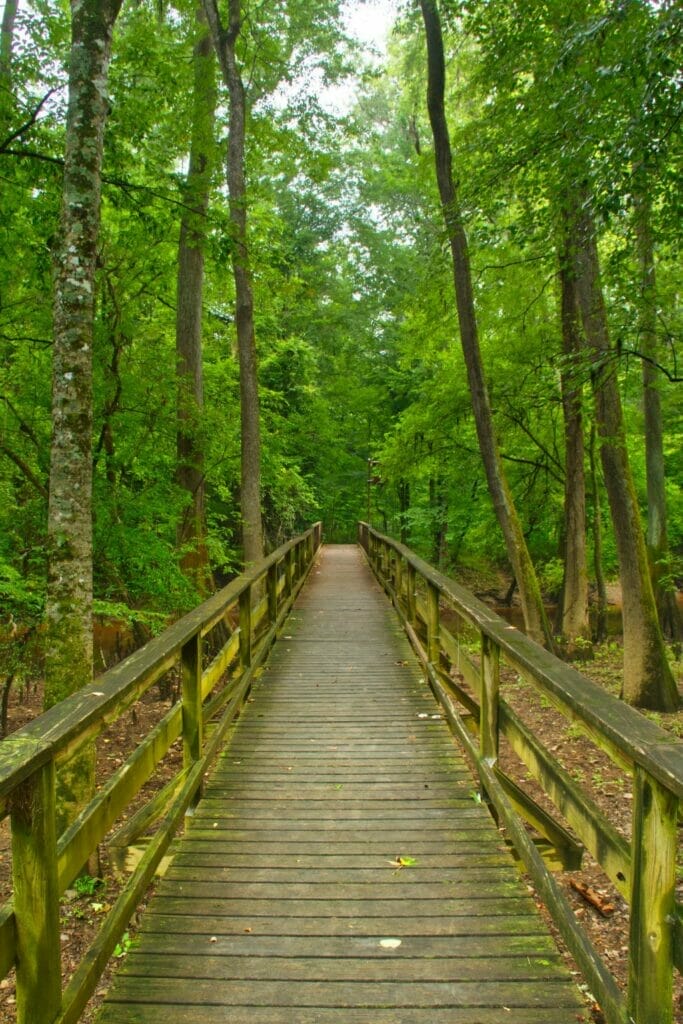
Congaree National Park is a unique natural treasure located in the heart of South Carolina.
The park is home to one of the largest intact expanses of old-growth bottomland hardwood forest in the southeastern United States.
Visitors can explore the park’s diverse ecosystems, which include floodplain forests, swamps, and oxbow lakes.
17. Revolutionary War Sites
South Carolina’s pivotal role in the Revolutionary War is commemorated through numerous historical sites and battlefields.
From the Battle of Cowpens to the Siege of Ninety Six, these locations offer a window into the challenges and triumphs faced by soldiers and civilians during the war.
18. Shag Dance
The shag is a popular dance style that originated in South Carolina during the mid-20th century.
Evolving from the jitterbug and swing dance, the shag is characterized by its smooth and rhythmic movements, often danced to beach music or rhythm and blues.
The dance gained prominence in beach communities along the South Carolina coast, particularly in Myrtle Beach.
19. College Football

South Carolinians are passionate about college football, with two major universities, Clemson University and the University of South Carolina, competing in the NCAA Division I Football Bowl Subdivision (FBS).
The rivalry between these two teams, known as the “Palmetto Bowl,” is an annual highlight of the college football season.
20. Cypress Gardens
Cypress Gardens is a natural oasis known for its serene cypress swamps, blooming gardens, and picturesque landscapes.
Located in Moncks Corner, the gardens gained recognition for their appearances in films such as “The Notebook.”
Visitors can explore walking trails, paddle through waterways on flat-bottom boats, and admire a variety of plant and animal species.
21. Military Installations
South Carolina is home to several significant military installations, including Fort Jackson, the U.S. Army’s largest basic training facility.
The state’s military history dates back to the Revolutionary War, and its military installations continue to play a vital role in national defense.
22. Daufuskie Island
Daufuskie Island is a barrier island known for its rich Gullah Geechee heritage, unspoiled beaches, and distinct way of life.
Accessible only by boat, the island offers a glimpse into a quieter, more traditional way of living.
The Gullah culture is preserved through art, music, storytelling, and traditional crafts.
23. Francis Beidler Forest
The Francis Beidler Forest is a pristine swamp forest located in the South Carolina Lowcountry.
The forest’s ancient cypress and tupelo trees create a captivating landscape that transports visitors to a prehistoric era.
The elevated boardwalks wind through the forest, allowing for up-close encounters with a variety of wildlife, including migratory birds, reptiles, and amphibians.
24. Catawba Indian Nation
The Catawba Indian Nation is a federally recognized tribe with a rich cultural heritage in South Carolina.
The Catawba people have inhabited the region for thousands of years and have played a significant role in the state’s history.
Their contributions to art, pottery, and traditional crafts are celebrated through cultural events and exhibits.
25. Columbia

The state capital, Columbia, is a dynamic city known for its blend of history, education, and arts.
Home to the University of South Carolina, the city exudes a youthful energy while maintaining its historical significance.
The State House, a striking neoclassical building, anchors the downtown area and is open for tours.
The Riverbanks Zoo and Garden is a popular family attraction, offering a diverse array of animals and beautifully landscaped outdoor spaces.
Want to know what things the other US states are known for? Check out our other guides!
- Interesting Things Alabama is Known For
- Interesting Things Alaska is Known For
- Interesting Things Arizona is Known For
- Interesting Things Arkansas is Known For
- Interesting Things California is Known For
- Interesting Things Colorado is Known For
- Interesting Things Connecticut is Known For
- Interesting Things Delaware is Known For
- Interesting Things Florida is Known For
- Interesting Things Georgia is Known For
- Interesting Things Hawaii is Known For
- Interesting Things Idaho is Known For
- Interesting Things Illinois is Known For
- Interesting Things Indiana is Known For
- Interesting Things Iowa is Known For
- Interesting Things Kansas is Known For
- Interesting Things Kentucky is Known For
- Interesting Things Louisiana is Known For
- Interesting Things Maine is Known For
- Interesting Things Maryland is Known For
- Interesting Things Massachusetts is Known For
- Interesting Things Michigan is Known For
- Interesting Things Minnesota is Known For
- Interesting Things Mississippi is Known For
- Interesting Things Missouri is Known For
- Interesting Things Montana is Known For
- Interesting Things Nebraska is Known For
- Interesting Things Nevada is Known For
- Interesting Things New Hampshire is Known For
- Interesting Things New Jersey is Known For
- Interesting Things New Mexico is Known For
- Interesting Things New York is Known For
- Interesting Things North Carolina is Known For
- Interesting Things North Dakota is Known For
- Interesting Things Ohio is Known For
- Interesting Things Oklahoma is Known For
- Interesting Things Oregon is Known For
- Interesting Things Pennsylvania is Known For
- Interesting Things Rhode Island is Known For
- Interesting Things South Dakota is Known For
- Interesting Things Tennessee is Known For
- Interesting Things Texas is Known For
- Interesting Things Utah is Known For
- Interesting Things Vermont is Known For
- Interesting Things Virginia is Known For
- Interesting Things Washington is Known For
- Interesting Things West Virginia is Known For
- Interesting Things Wisconsin is Known For
- Interesting Things Wyoming is Known For
Get the All-American Travel Secrets!
Don't miss out on America's hidden gems!
